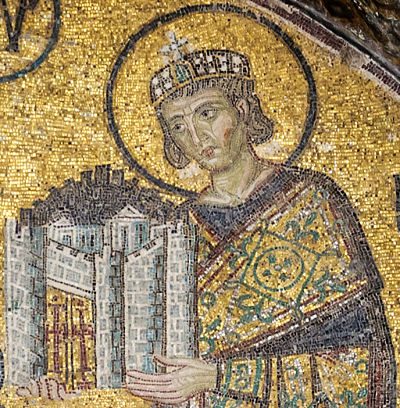
Conservatives are rightly skeptical of great men. For every Lincoln, there is a string of Harding, Hoover, Dewey, Taft mediocrities. Worse, few great men are like Washington, able to give up power when they have it. instead, they become Napoleon, a great man who went the wrong way for all the right motives.
Christians know our leaders all are human and if we forget, the Bible gives us the examples of Abraham, of Moses, and of David. Abraham lied through lack of faith that God could protect his wife. Moses hit the rock when God told him to speak to it and so was denied the Promised Land. David was a murderer and adulterer.
Abraham was the Father of the Faithful.
Moses is the Great Law Giver.
David is the man after God’s own heart.
Great men do happen. . . we must find them . . . even if we must be cautious toward them.
We know our great men are flawed men, at least until it comes to history. Then we act as if we are waiting for a flawless man . . . not to save us, we have already had our Messiah and He is and will come. Instead, we need heroes: men and women who do not get everything right, but get the main thing right.
Churchill was not always a good man, but he was a great man because he saved his generation from the Nazi scourge. He failed at India badly, but he got Germany just right and it was Germany in that generation that threatened to destroy the humanity of humans.
Nobody is slandered more that the great Christian hero and prince: Constantine.
There is no church problem, however obscure, that some liberal or conservative theologian has not blamed on Constantine. For honoring him the church historian Eusebius is derided, but only by those who have not been persecuted by the Roman government. In his age, Constantine got the main things right: he saved and reunited the Empire, he gave up on trying to eternally prop up the decaying city of Rome and built a bulwark that would save Christendom for centuries (New Rome), and he ended the persecution of the church.
He did not make Christianity the state religion, though he and his saintly mother favored the church. He was not perfect, he ruled often like his fathers before him . . . brutally, though more effectively than most. He was actually converted very late in life. However, the Church had existed for three hundred years before Constantine and was not “pure” or “pacifist” or “not involved in politics.” Constantine could not have corrupted the entire Church in any case since many Christians existed far outside the bounds of his Empire (something most people forget). Those Christians, who still exist, are not found today in Anabaptist, seeker sensitive communities, insulated from the politics of Ethiopia, India, or Armenia.
Constantine did not rewrite the Bible. He did not change church doctrine. He did fight real wars, unite an actual empire, and build a great city. He was not a man of talk, but deeds. He was not the product of puffery or good press, but of power coupled to a strong will. Constantine was also willing to change, repent, and learn.
He did end the periodic killing and persecution of Christians and made the Mediterranean world safe for study, commerce, and art. He got the big things right and as a result set in motion an Eastern portion of the Roman Empire (called Byzantium in the West) that preserved ancient learning and built on it. The Western Renaissance was made possible by the continuous flow of scholarship from Constantine’s great city. Classical and Christian education would be hammered out in an Empire whose founder began his career in York and ended it in Constantinople.
As long as his memory survived, Britain and Byzantium could never be totally separate and a trace of common culture, a global culture would remain.
Today is his feast day: Constantine the Great. He kept changing and growing all his life. Some say that after he was baptized, Constantine never wore the royal purple again, clothing himself only in the white of baptism. This is a man who kept changing all his life for the better.
We could use a man like him just now . . . in a Republic perhaps men and women like him, not just one man. They will not be perfect (so there is hope!). They will get many things wrong, perhaps even important ideas wrong, but they will get the big things right. May we like Eusebius have eyes to see the Constantines of our time . . . whereever they are to be found. We don’t need impotent men who get the little things right and the big things wrong, but good, sound, strong people who get the big things right and are changing into God’s image over the course of their lives.
Maybe, just maybe, we can educate a generation fit for Constantine or that can be a generation of men and women who see the Cross and in that sign of sacrifice conquer.












